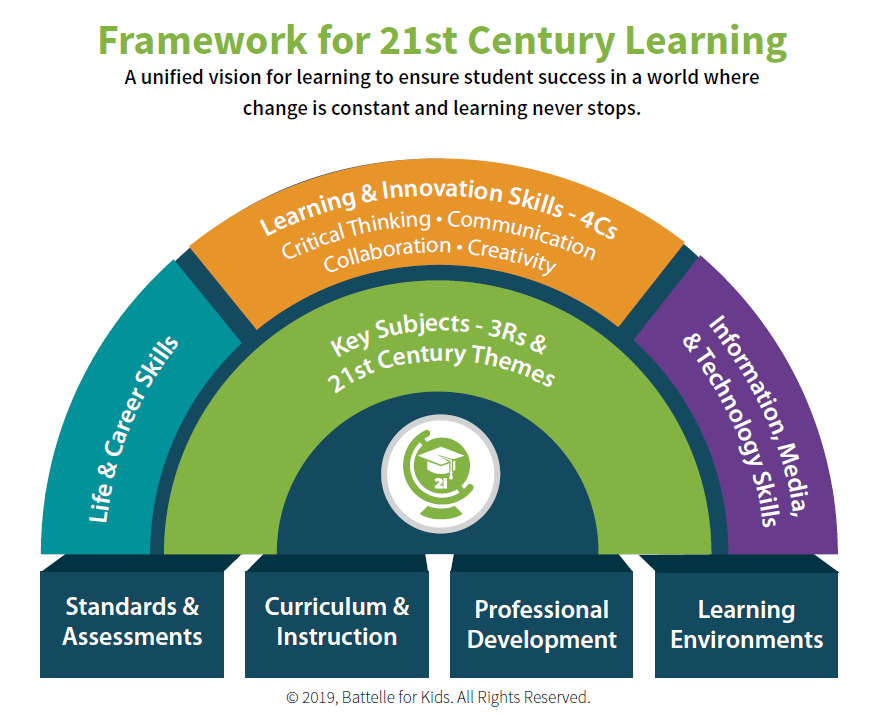So many questions to answer and so little time…I’ll focus on one.
In looking at the Framework for 21st Century Learning in the Battelle for Kids program, I’m not sure I see a significant change over the past several decades, although that could be perceived as an opinion, given I don’t have similar documentation to review from that time frame.
The reason for my statement is that the foundation of standards and assessments, curriculum and instruction, professional development, and learning environments appears to have been the foundation of education for a number of years including the time during which my mother was an elementary school teacher in the 1950s. In evaluating Figure, I would consider the most relevant aspect of this framework reflecting the 21st-century themes to be the key subjects with the themes of global awareness, financial literacy, civic literacy, health literacy, and environmental literacy. Within the upper arc, technology would also represent one of the newer additions, since by definition – the technology we use to teach has clearly evolved over time. Does anyone recall slide carousels, cassette recorders, and overhead projectors?
There are differences in education that I would identify to be unrelated to what I perceive to be a Batelle marketing tool. I think that the profession of teaching has evolved to be more inclusive and not considered just “women’s work”, which has resulted in more diverse approaches – teachers are integrating teaching as one facet of the many skills and competencies they provide – whether it’s content and competency, coaching and life skills or just another listener to help someone else along on their journey. Peer learning is considered an acceptable means of teaching and learning as opposed to just noise in the classroom. Most importantly, I believe that teaching has evolved to focus on outcomes, rather than outputs. As John Seely Brown observes – helping students spend less time learning about and more time on learning to be.
I would expect that in order for teaching to be successful in whatever century we are discussing, it needs to evolve continuously to meet the needs of the customer. All the theories and models are useless without an audience so we must nurture the love of learning in our clients in order to continue to practice our craft. And because we are human and all manage change differently, some teachers will embrace that concept and others will be resistant to change. As in all things, it’s a journey and some will stay close to home and others will travel far. It’s really a question for you as to where you decide to travel and what tools you carry in your backpack when you do.
